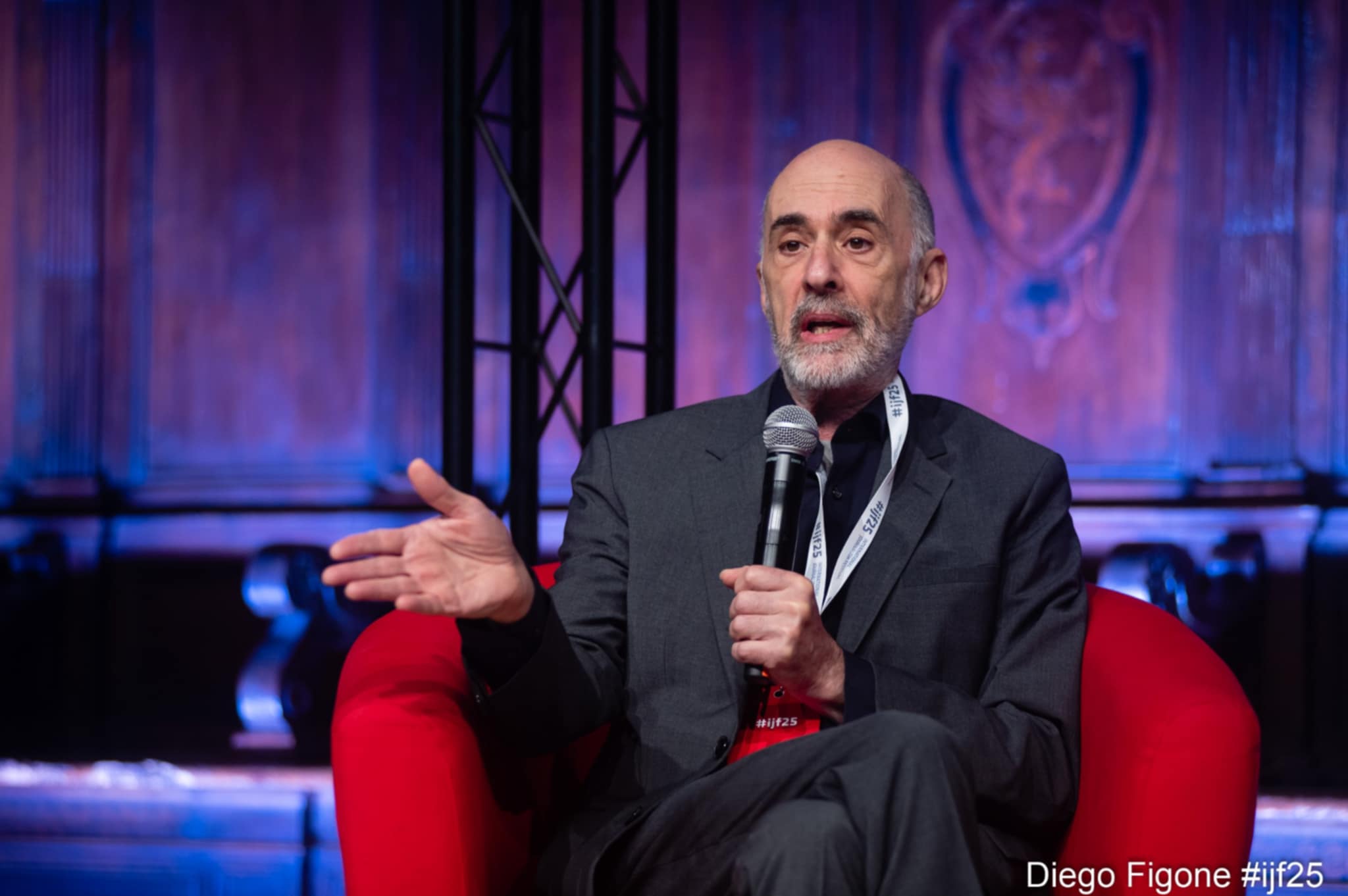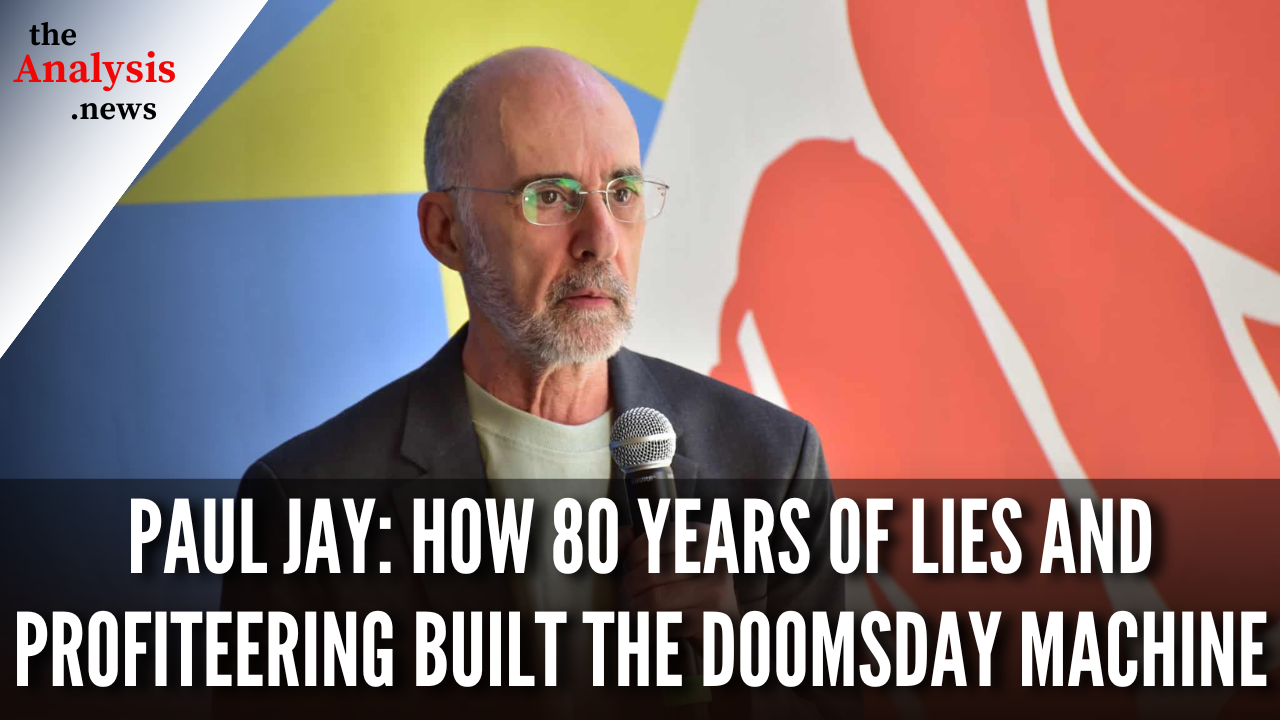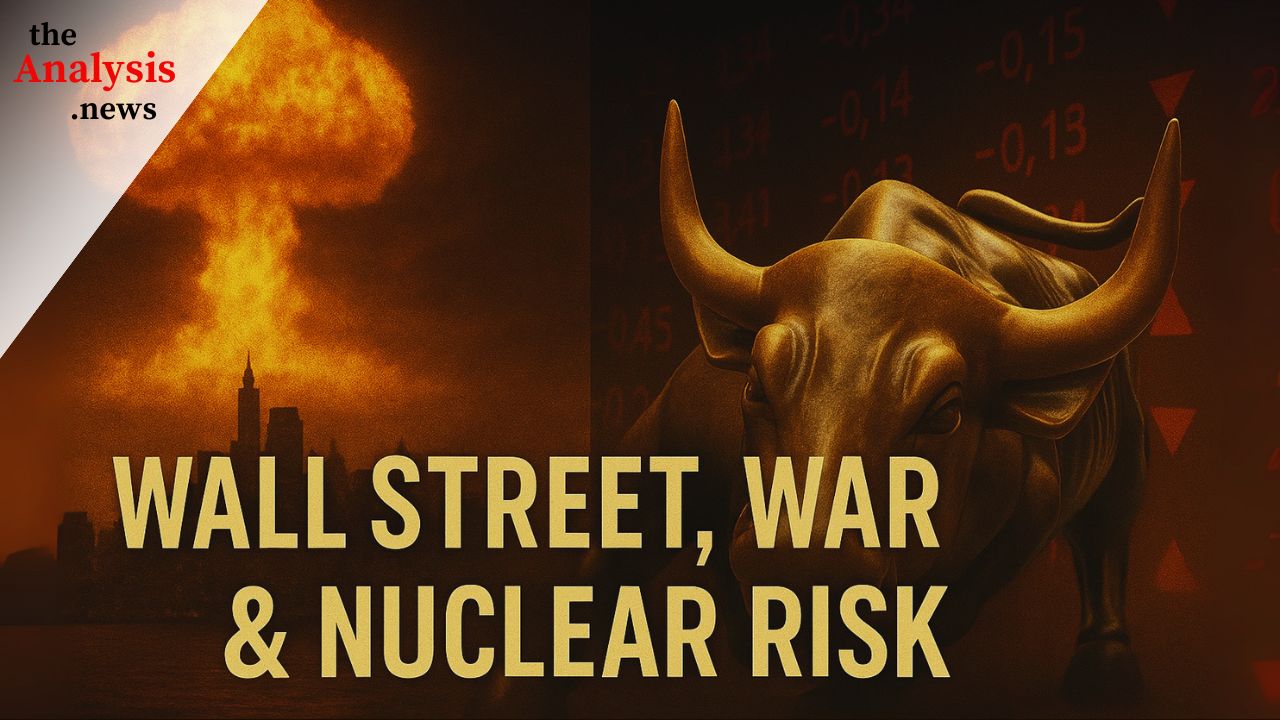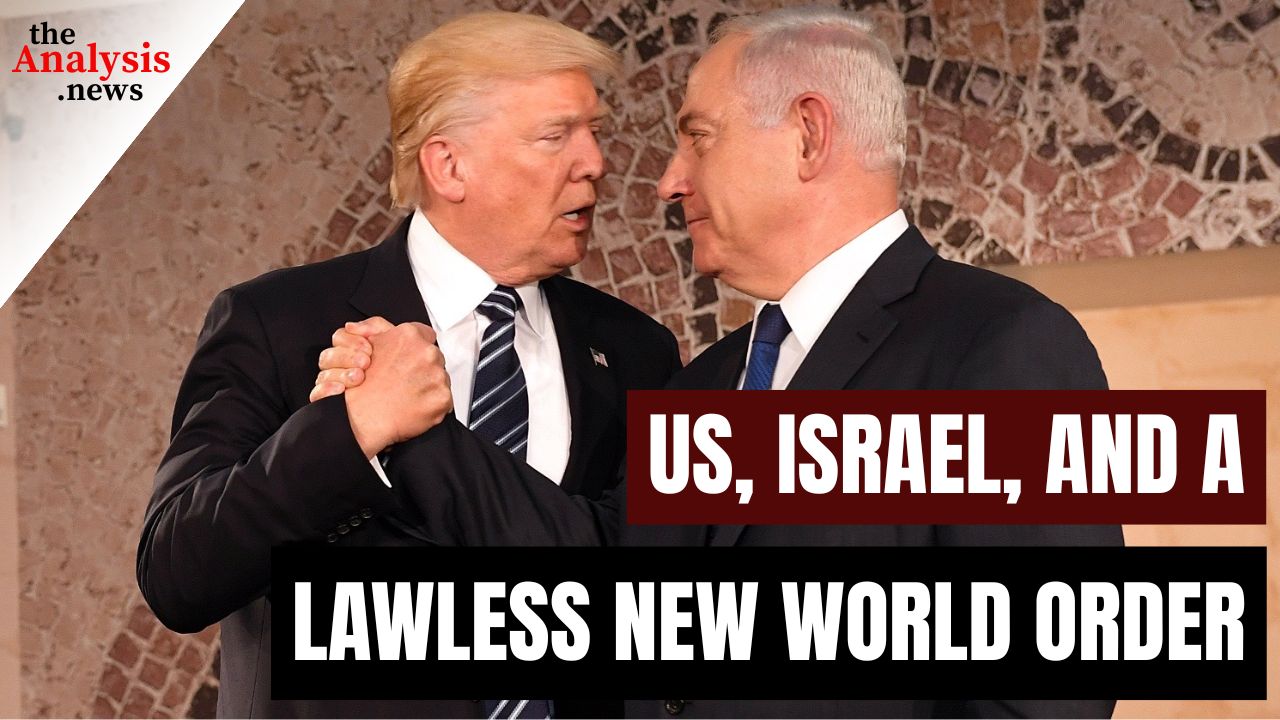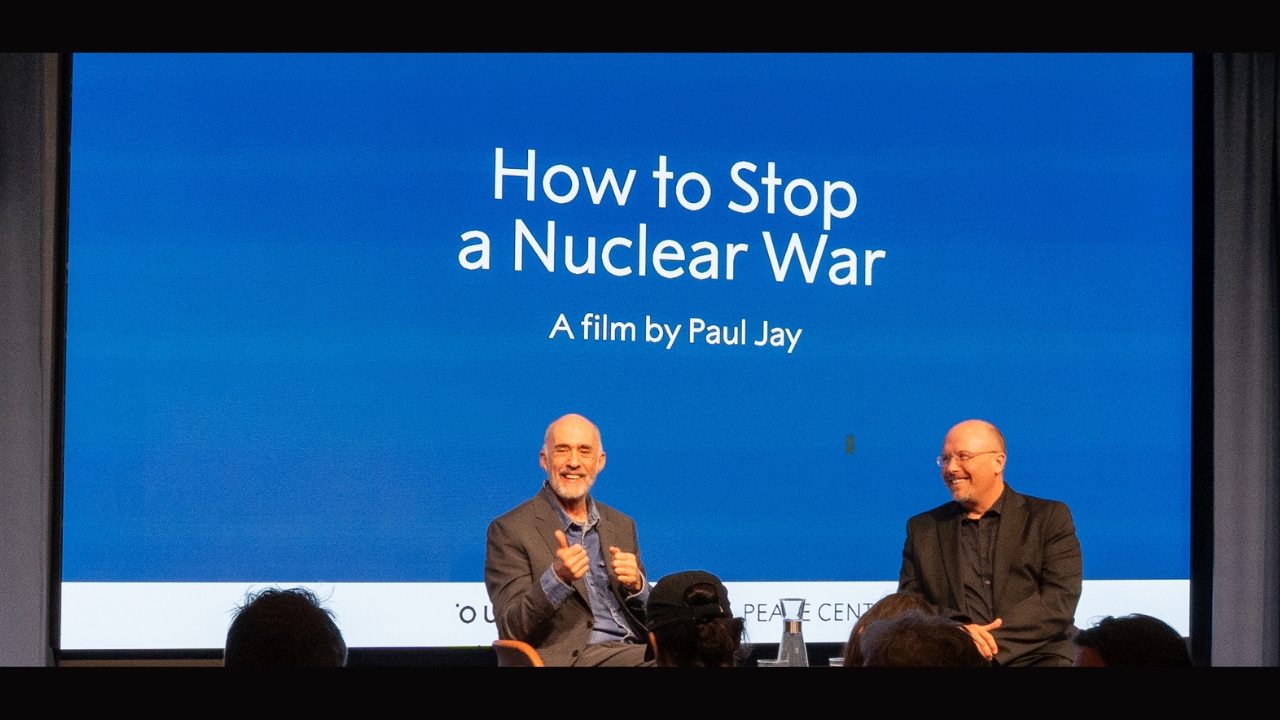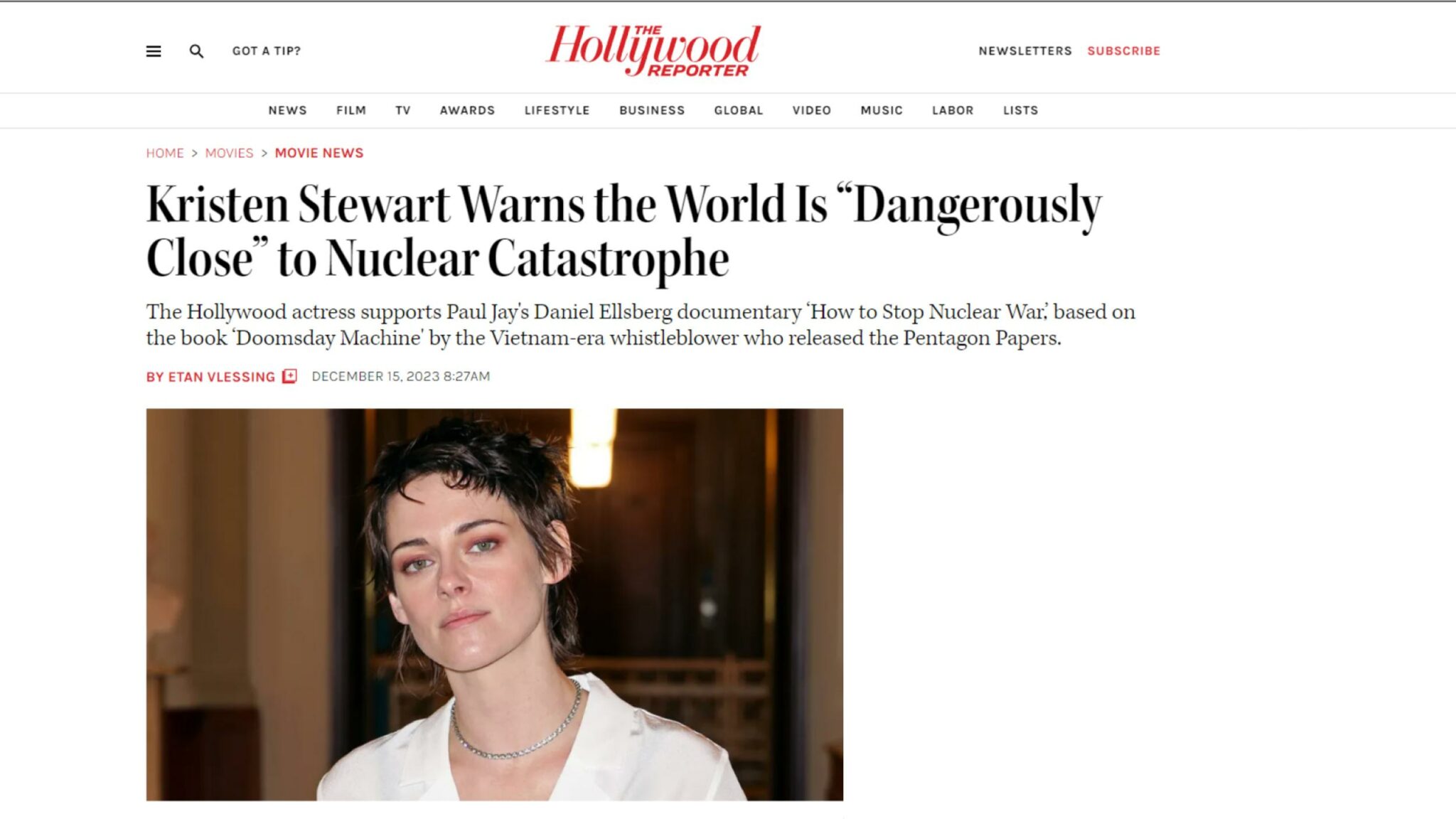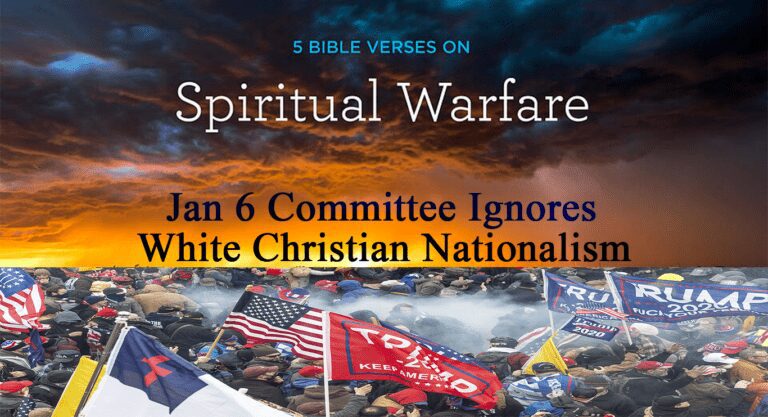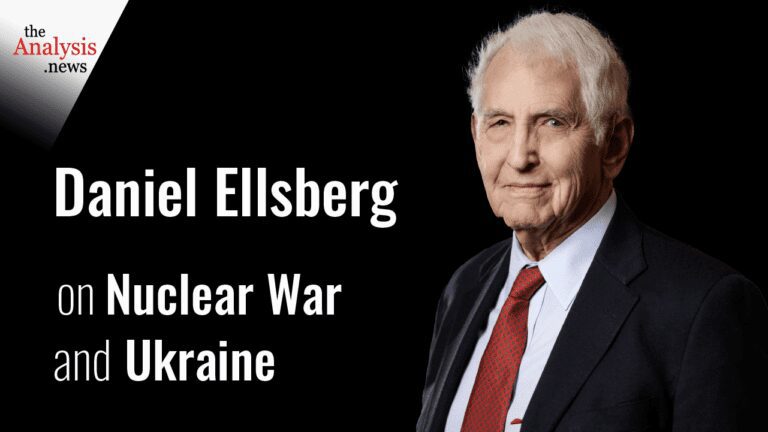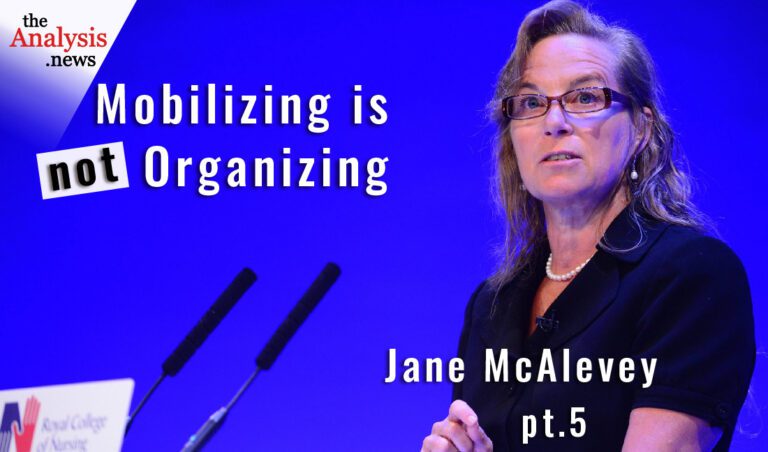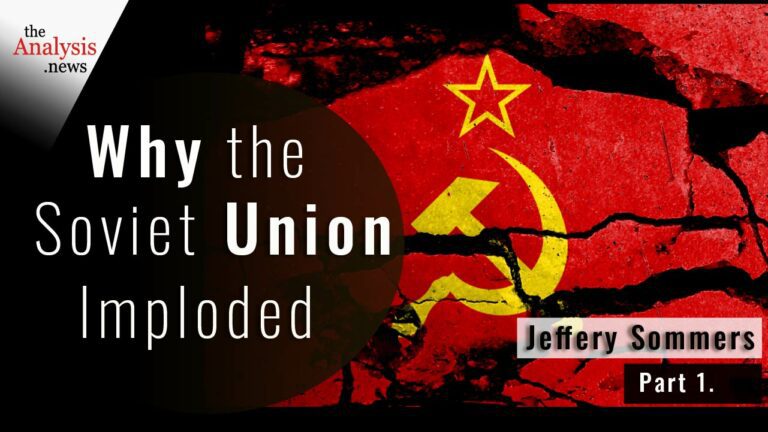On April 12, Paul Jay attended the International Journalism Festival in Perugia, where he discussed his upcoming documentary How to Stop a Nuclear War, based on the book The Doomsday Machine: Confessions of a Nuclear War Planner by Pentagon Papers whistleblower Daniel Ellsberg. The film, narrated by Emma Thompson, reveals how U.S. nuclear policy was built on secrecy, deception, and the willingness to risk global annihilation—and explores what can be done today to reduce the danger. Jay examines the fabricated threats and Cold War lies that justified the arms race and how these narratives continue to shape policy and public perception today. Jay will also discuss NATO and U.S. President Donald Trump’s “Golden Dome.”
Robert Elder
So thank you so much. Again, I’m Robert K. Elder with the Outrider Foundation. This is director Paul Jay. Paul, can you talk just very briefly about Daniel Ellsberg’s journey from a Cold War hawk, a nuclear war planner, to an anti-nuclear activist?
Paul Jay
Sure. Dan believed, before he died, that we are in another acute Cold War moment now, which is why he spent so many hours, not just talking to me, practically to his last breath; he was talking and doing interviews and trying to warn people, arouse people to the imminent danger of nuclear war.
He began his career professionally as a very serious Cold War believer, a hawk. He joined RAND Corporation in the late ’50s because he thought there was a danger of another Pearl Harbor, and that would be a Soviet nuclear attack, first an attack on Western Europe and then an attack on the United States.
When he discovered this war, our plan, which was under Eisenhower, was that if there was a conventional fight between American and Soviet troops, probably something to do with Berlin, if the Americans weren’t doing very well, the plan was for what Herman Kahn, who also worked at RAND Corporation, called a ‘wargasm,’ meaning the entire nuclear arsenal in the United States would be unleashed against the Soviet Union and China. It would wipe out every major city. When asked why China, military officials at the time said, “You have to be naive and stupid because they’re not going to leave any city in China or the Soviet Union.”
One should understand that the 600 million estimated people that would be killed, which was a gross underestimation, included essentially the entire population of Europe. Europe to U.S. strategy, and to this day, I think, Europe’s collateral damage. He’s not building a ‘Golden Dome,’ Trump, for Europe. There’s no and never was an intention of saving Europe.
I was just in Norway, and a former Norwegian Prime Minister agreed with what I’m about to say. The nuclear umbrella was a con. It was a fraud. It never existed. There was no way the Americans were ever going to trade New York for Rome, Oslo, Berlin, or anywhere else. Quite the contrary, the war plans included an understanding there wouldn’t be a Europe left after a war. Ellsberg started to realize these things. The missile gap was a big beat for him. The whole idea that there’d be a Pearl Harbor was based on this massive, overwhelming Soviet threat. It turned out to be a con.
To make a long story short, because I feel that Rob is about to tell me to move on, the Cold War was based on a complete set of lies. There was never a Soviet threat to Western Europe, and the CIA was telling the Truman administration this. I can point anyone who wants to the CIA documents of the ’40s, where they specifically tell the Truman administration there’s no threat to Europe from the Soviet Union. And, of course, that’s the time of the Truman Doctrine, and they used the threat. This is the point. The Cold War was a terror campaign to threaten Italy, when there might have been a Communist government elected, to use it as an excuse to support the far-right in Greece. We’re seeing the same moment now that there’s a big push to remilitarize Europe. The Germans, what do they want? A trillion dollars of militarization. We’re back in one of these same moments now. So the short of it is, Ellsberg finally woke up.
Robert Elder
Paul, you and I were just in Oslo at the Nobel Peace Center. The Nobel Peace Prize, the last one given was to the Nihon Hidankyo. Those are the folks who are collecting stories of atomic bomb survivors in Japan. It’s one of 14 prizes that the Nobel Peace Institute has given to nuclear-related causes. At this point, what else has to be done to wake up the public to the dangers of nuclear war?
Paul Jay
Well, first of all, there needs to be a public debate about whether we’re willing to put the fate of human civilization in the hands of Lockheed Martin and Elon Musk and their counterparts in Europe. They call the leaders of the military-industrial complex, especially in the nuclear era, they call it the nuclear priesthood because it is a religion. It’s all based on nonsensical assumptions like the ICBMs that Dan talks about and Wilkerson talks about. It’s the most ridiculous thing in the world. You know what they call them now? Because it’s so obvious they would be the first target. They call them nuclear sponges. Their objective is to be there. So if the Russians send missiles to the United States, they’ll target the ICBM silos first and take up some of the missiles to be wasted.
Well, first of all, how can you publicly say they’re just nuclear sponges and then think the Russians are going to attack them? I mean, it’s nuts. If there’s a nuclear war, it’s a civilizational war. There’s no such thing as limited. We need to unpack the underlying assumptions of the Cold War. Yes, it got a bit complicated. The Russian aggression, Russia against Ukraine; it’s a different thing. The Soviet Union, as repressive as it was domestically, never really attacked anybody. The closest you can get to it is Afghanistan. It intervened in Czechoslovakia, but even there, it’s far more complicated. But that doesn’t change the fundamental fact.
Where is there a threat? Do you think the Russians are going to invade Italy, Norway, or Germany? As different as the Russian Federation is now from the Soviet Union, there’s no evidence there’s any more threat to Western Europe now than there was then. This is a big con, and we should start, one, exposing the underlying assumptions and then two, I guess we’ll get into it in the next question, but there are some specific things we can demand. Because while the risk of a deliberate nuclear war, I think, is very low, not zero, but close to zero, that someone is going to just decide, let’s go launch. Why the hell would they? But the more the world gets tense, whether it’s over Ukraine or Taiwan, the risk of miscalculation and accidents goes up and up. The fact that there are no talks going on, no arms limitation treaty discussions– right now, as far as I understand it, the Chinese and Americans aren’t even talking to each other. The Chinese won’t pick up American phone calls. We’re at such a dangerous moment.
Yet, in this International Journalism Festival, if it wasn’t for Rob, there wouldn’t be a single session on the issue of nuclear weapons, and this is the only one. I’m really happy all of you came, but why isn’t this place packed? Well, I’m not famous. That’s one of it. But it’s also that people are in denial.
I produced a daily debate show for CBC in Canada for 10 years, daily, and it just occurred to me in 10 years, I didn’t produce one show about the threat of nuclear war. I was just as much in denial as everyone. We have to get over this because the risk is very serious.
Robert Elder
That’s a good segue. Who do you hope sees the film then?
Paul Jay
Well, journalists, this is great because journalists need to put this on their agenda. The whole issue is everyone’s in such denial. Why does Italy have nuclear weapons? I mean, why? A few days ago, there was, what I know, a really great protest against using this moment as an excuse for the remilitarization of Europe. But what the hell?
First of all, the Italians don’t control these nuclear weapons. You need an American to say use them or not, but they’re a target. So, if there actually is a conflict, one of the first things Russia would target is to target these Italian weapons. They don’t defend Italy; they make Italy a target. So what’s the point of it all? It’s the whole point of NATO; it’s to ensnare Europe in the American military-industrial complex. In fact, I think that’s the whole reason for the eastward push of NATO. It’s not a military threat to Russia; it’s to ensnare more countries into the American sphere of influence. Of course, the Russians want a Russian sphere of influence, and we’re supposed to side with one or the other. No, we should condemn them both.
Robert Elder
Who else? Who else should see the thing?
Paul Jay
I want to have a special screening of this on Wall Street. I want to say to Larry Fink, the head of BlackRock, which is an asset management company that has $9 trillion under management. I want to say to him, “You say you’re there to defend the assets of your investors. Well, how about defending the asses of your investors?” You’re risking everything for a thimble of profit. But in their heads, “The Pentagon says we need it.”
There’s a great line by a guy named Stanley Weiss, who was a multimillionaire, recruiting corporate executives to be against nuclear weapons. He would go around making speeches. He would say, “Being dead is bad for business.” Even in the elites, we need to get some of them to wake up. It’s not just a systemic threat; it’s a threat to the entire civilization.
Robert Elder
There’s a piece of the film that talks about artificial intelligence and artificial intelligence in command and control. You and I talked about this a little bit. There were war games done with Georgia Tech and Stanford University, in which they had four AIs work through a war game scenario. Three of them said launch. One of them said don’t launch. But it made me wonder, are we asking the AI even the right question? Because this seems to be about winning rather than survival, or as John Mecklin at the Bulletin of the Atomic Scientists said, “suicide.” These are suicidal weapons. The use of them is suicide. So, are we asking the right questions when it comes to AI?
Paul Jay
Well, I asked AI, and I have four AI platforms I talk to regularly. It’s interesting because they, partly based on my prompt and partly they went off on it, they say the problem is who owns AI. AI for whom? If AI is for profit, where’s the money? Well, right now, the big corporations aren’t ready to really seriously adopt AI at the level that would make it profitable. Trillions of dollars are these AI companies are being evaluated, tons of money invested. And this plan where AI agents are going to run corporations, NVIDIA openly talks about it. It’s very dangerous.
Even Eric Schmidt says at some point, these four or five AI agents that are running a corporation are going to start talking to each other in a language they can’t use human language anymore. It’s not fast enough. And once they start using their own language, humans won’t know what they’re talking about. That’s already in itself an existential danger.
Now, apply that to the militarization of AI because that’s where the money is now. Who actually wants to spend real money on AI right now? It’s the military. American, whether it’s Russian or Chinese, there’s this AI race, and the Americans, even though somebody like Eric Schmidt talks about the existential threat of AI, he’s one of the big investors in militarized AI. Why? Because the Chinese are doing it. Well, that’s the old Cold War argument. The Soviets are doing it, so we have to do it. The Chinese are doing it. Instead of talking and having some rational negotiation.
You can also ask AI how to save the situation. Try asking AI for solutions to the climate crisis. It can be brilliant, especially if you prompt it past some of the normal conventional answers. Ask it if it would be a good idea to nationalize fossil fuel companies, phase out fossil fuels, and bring in sustainable energy. AI will go right off on it. In fact, I think humans, our only future is in cooperation and collaboration with not-for-profit AI. Some of the founders of AI say it today, like Geoffrey Hinton, and others; even the founders of OpenAI, started it as a nonprofit company with a small for-profit. Now, Microsoft has invested in the for-profit piece, and the for-profit has taken over the nonprofit.
OpenAI had a rule against militarization. They wouldn’t work with the Pentagon on AI. Now, since they’ve turned OpenAI into mostly for-profit, they dropped the non-militarization, and now they’re fully collaborating. It’s insane. It’s as insane as the fossil fuel, and this is complete now… they’ve got a President of the United States who’s a complete climate science denier. Okay, but as much as he’s a climate science denier, most of us, including most journalists, are nuclear war deniers. We’re all shoving it off into the back of our minds, and in a sense, it’s an even more imminent threat than the climate crisis.
Robert Elder
We have a few minutes left before I want to go to questions from the audience. We talked about President Trump a little bit, and he has always been against nuclear weapons. He’s one of the few recent presidents who has talked about denuclearization. He has called them a waste of money. If we’re going to live up to the title of the film, what are some small practical things, three things that we can do to reduce the risk of a nuclear war?
Paul Jay
Well, I don’t think anybody except some of the craziest of the Christian nationalists want nuclear war. Whether it’s the Pentagon or the Kremlin or in Beijing, nobody wants nuclear war. But they are so locked into this economic-driven nuclear war planning. There’s so much money in it. It’s also the ideological linchpin of the whole military-industrial complex. So yes, Trump doesn’t want nuclear war, but I don’t think anybody really does. He does want to shift some of the money from conventional warfare, maybe nuclear weapons, into this Golden Dome anti-ballistic missile system, which is extremely dangerous because if it’s at all successful, as Ellsberg says, it actually makes them imagine a first strike as winnable as possible. What it means is the Russians have to develop something that can bypass it. The Chinese have to develop their own anti-ABM systems. It’s the most destabilizing thing. It’s not really a way to mitigate nuclear war. It’s even more dangerous. Second, the Sentinel ICBM system, which is a whole new whack of modernized ICBMs, was supposed to be ready by 2030. It’s not going to be. Maybe it’s 2035. Even though Trump said some things about why are we spending so much money on Sentinels, it’s moving ahead at full speed. He’s actually done nothing to stop it. In fact, I just saw today that they just stood up something called, I think it’s Division 11 or something. It’s the actual divisions that are going to manage the transition and the operations of the new Sentinel system. It’s 85% over budget. There’s Congressional legislation that was supposed to stop this, and they’re not doing anything about it. So he might shift some money, but I don’t think the way he shifts money is less dangerous. It’s actually more dangerous.
Okay, what can we do? Number one, demand a public debate about nuclear war planning. In Italy, demand a debate. What the hell are these weapons doing here? It’s so obvious they only make Italy a target. As much as the Russian incursion in Ukraine was illegal, a war crime, is it less illegal or a war crime than the American invasion of Iraq? In fact, I really wonder, would the Russians have even gone into Ukraine if the Americans hadn’t already established the precedent that you can do something like this and get away with it? I mean, there were no consequences for anybody. Bush/Cheney should have been charged with war crimes. In fact, Obama had an obligation under international law to charge them with war crimes. He didn’t do that.
I don’t want to get deeply into Ukraine right now. I’m happy to if somebody wants to talk to me afterwards. But we need to separate the issue of what’s happening in Ukraine. The Russians, the Chinese, and the Americans have to be talking to each other at the very least. We have to demand that. We have to demand that we’re not going to buy into this religion anymore. We need to expose the nuclear priesthood.
Then, at the end of this trailer, there were some very specific things. For Americans, demand, get rid of these ICBMs. Here’s a scenario. I asked Ben Rhodes, who was one of the main advisors for Obama, whether what I’m about to say was possible. Ben Rhodes used to ride in Obama’s motorcade, and he would sit next to the guy with the suitcase, with the codes. One of Rhodes’ jobs was he had to run the suitcase with the guy up to Obama if they had to start a nuclear war. Here’s the scenario. The Chinese decide they are going to militarily intervene in Taiwan, or at least look like they’re about to. The Americans sent up all their boats, and they got their aircraft carriers and so on in the South China Sea. Right at that moment, a meteor shower or some space garbage takes out American strategic satellites. AI, which is already in the loop for analyzing the radar satellite data, concludes this is the beginning of a Chinese first strike because, in fact, that is the beginning of a first strike. One of the first things, whether it’s Russia or China, would do is take out the satellites because that’s the way they know what’s coming.
Let’s say space garbage hits it. AI tells the President, I think this is the beginning of a first strike, and you got 10 minutes to decide whether to launch these ICBMs. Who’s going to say no to AI? We’re in this moment already. It could happen tonight, it could happen tomorrow, five years, 10 years, I don’t know. But what Jerry Brown says in the video, and most of the experts think this, it’s inevitable. There is going to be a moment like this unless we open our mouths.
Robert Elder
I do want to open it up for questions. So if you have some, please be ready. You had Alan Robock here, a climate scientist, and he points out, again, this is the International Journalism Festival, that even if you take out, if you remove from the argument, China, America, and Russians, even an exchange between Pakistan and India, if they have a nuclear exchange and those cities burn, millions die because of the nuclear winter, because of those cities burning in the atmosphere. So again, just wanted to point that out. Questions? Do we have questions? Do we have a microphone? All right. This is Lisa Church here.
Lisa Church
Hi, I am from my school’s journal, from high school. I wanted to ask if you think this topic should be talked about in school and how students like me, they’re interested in just how to talk about it. It would be nice to talk about it in school.
Paul Jay
That’s a great question. I would say start with getting together with all the kids that are already awake about climate and start saying that people that are already organizing, speaking out, should make this an issue alongside climate, what Dan said at the end there because it’s really the same structures that are in denial about the threat of the climate crisis and nuclear. Get educated, form groups, organize, try to get resolutions passed at your school, and put pressure on history teachers. It’s not so much the fault of the teachers because they’ve been trained. But the way history has taught, it’s nonsense, especially the roots of this nuclear religion and what happened in the 1940s. People really have to understand that at the end of World War II, the U.S. was in great crisis because they built these massive aerospace companies like Lockheed. But what were they going to do with them when the war was over? It was all dependent on big government contracts. So, they had to come up with a big enemy to justify spending at the levels of World War II and even more. So they just concocted it. So learn about this, and I’m happy to help.
When the film comes out, I would say, get people to watch the film. It’s going to open up theatrically to begin with, I hope, in cities all over the world. It’s a good place to start getting people educated about it.
Robert Elder
All right, we have about seven minutes left. I saw another hand over here.
Cristina Bomer
Thank you. Great. My name is Cristina Bomer. I’m from Czechoslovakia. Well, now those are two countries, but still the same. I understand everything that you’re saying, that Italy is the target with the nuclear weapons and everything. On the other side, for us, it’s crucial somehow because in Eastern Europe, if it wasn’t for NATO and if it wasn’t for pushing Eastern, we were begging to get inside because we are really scared of Russians. We lived under occupations of them for more than 30 years, and those were the worst times ever. In case of denuclearization, for example, what would be with us. Will there be someone to help us? Because we are small countries in Eastern Europe, we cannot protect ourselves from Russians. Will there be someone to help us then?
Paul Jay
No.
Cristina Bomer
Thank you.
Paul Jay
The Americans will not commit suicide for you. Henry Kissinger said it openly. He made a speech to NATO in 1979. Afterward, if you want, I can show you. It was reported in Time magazine. It wasn’t some big secret speech. He told the Europeans, “We are not committing suicide for you.” They won’t trade in New York for any European city. No.
The problem now, and there’s no easy answer to what you’re asking, if in the 1990s, if the West, led by the U.S., had tried to normalize things with Russia and not lied to Russia about NATO expansion, which I think it’s clear the evidence is they lied to them. I don’t think we would have such a toxic, nationalist, chauvinist, dangerous system and government in Russia right now. But it is what it is. I mean, maybe there wouldn’t have been a Hitler if there wasn’t a Versailles Treaty. But there was a Hitler, so once there is, you got to deal with it. I’m not saying Russia is not a threat. It is. But how much and how far it goes? I don’t know. It’s certainly not a threat to any of the major West European countries, but I get what you’re talking about.
You have to be prepared to defend yourself. But I would say neutrality makes you less of a target. If Ukraine had taken NATO off the table before the invasion, maybe, even that’s not guaranteed because there are a lot of reasons for Russia going into Ukraine. Mostly, they wanted to extend their sphere of influence. But maybe if Ukraine had declared neutrality, maybe it would have lessened that risk. But to think that NATO will really duke it out, especially under the Trump administration, but I think he reflects Wall Street. He doesn’t just reflect some crazy Trumpists. They’re not going to sacrifice everything for some Eastern European countries.
Robert Elder
This is where we had a former Prime Minister, Bondevik, in Norway, talk about the importance for Norway and the Czech Republic, that conventional cooperation was important to them for exactly what you’re talking about. We have time for one more question, Paul.
Paul Jay
Just let me quickly. The only conventional would be European. Even there, you’ll see. But the Americans will not get into a head-to-head fight with Russia if they think it’s something, quote, unquote, belongs in the Russian sphere of influence. Trump’s being honest about what Americans have always thought. They’re not risking nuclear war for anybody except Americans. When he says, “Put America first,” they mean it.
Robert Elder
We have one more question.
Devon Terrill
Hi there. My name is Devon Terrill. I’m from the Stanley Center for Peace and Security. We have a journalism program that’s called the Developing Story Project, and it is meant to help train and form a community of journalists who are covering this topic. What is your advice as somebody who did at some point have an entry point into investigating the story and starting to talk about it and report it? What is your advice to journalists who are maybe feeling a bit intimidated by this topic or not understanding exactly how to go about starting to cover this or even staying on the story beyond these crisis moments?
Paul Jay
Well, what did it for me was Dan’s book, Doomsday Machine: Confessions of a Nuclear War Planner. That’s what woke me up. I was as much in denial as everybody until I read that. Then I said, holy shit. I said, this must be the most important book I ever read, just because of what’s at stake. I would say, read Doomsday Machine. Number two, when the film’s finished, watch the film. Number three, in the U.S. right take on this “Golden Dome” bullshit. It’s going to be trillions of dollars, boondoggle.
But the problem is this. We don’t know whether this Reagan vision of Star Wars plus AI, maybe it will work, at least a little, some. Everybody knew Reagan’s thing was bullshit. It couldn’t work. It’s like they said, stopping a bullet with a bullet. Everybody knew that was nonsense. We don’t know if this is complete nonsense. It will never stop a first strike of thousands of missiles coming in. Never. But what it might do is be effective enough that if the Americans launch a first strike, they could take out enough of the second strike to make Americans think, like Dan said, “Well, maybe we can get away with this.”
Tie this to this nuclear winter thing. There are people in the Pentagon that actually believe nuclear war is winnable. I mean, it’s insane. There’s almost nothing in the American press about any of this. In fact, the Outrider Foundation, that Rob leads. They were part of a group that helped fund the New York Times to do some journalism about the current danger. But there’s almost nothing else in the media about this. Stick your neck out. That’s what I would say to journalists. Stick your neck out. They’re not going to send you to jail for the rest of your life the way Ellsberg thought might happen, but he stuck his neck out anyway. What’s at stake here? Human civilization, that’s what’s at stake. So stick your neck out.
Robert Elder
And with that, I think we’re at the end of time. There we got it. So, ladies and gentlemen, let’s put your hands together for Paul Jay.
Paul Jay
And I know there’s another session coming, so if anybody wants to keep talking, I’ll just step outside the doors back there. And unfortunately, I can blab forever about this. Forever may be too long because who knows what will happen.
Podcast: Play in new window | Download | Embed
Subscribe Apple Podcasts | Spotify | Android | iHeartRadio | Blubrry | TuneIn | Deezer | RSS
Never miss another story
Subscribe to theAnalysis.news – Newsletter
